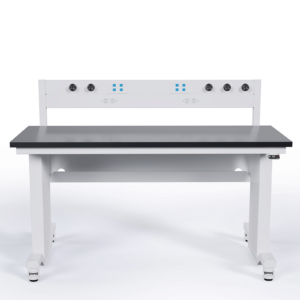New “Liquid Biopsy” Blood Test Could Detect the Presence of Cancer Much Sooner than Conventional Biopsies
When you hear of blood tests screening for the presence of serious diseases, such as cancer, you may be reminded of the now discredited claims by Theranos, a company led by Elizabeth Holmes who is now serving 11 years for securities fraud.
But the underlying concept may yet prove viable.
Next-generation “liquid biopsy” technologies that can identify the fragments of circulating tumor DNA (ctDNA) in blood plasma could become a new screening technique for identifying several types of cancers.
One of the primary challenges is that early-stage cancers only produce very miniscule amounts of ctDNA.
Researchers are working on how to make these ctDNA detection tests more sensitive so they can deploy a universal multi-cancer early detection (MCED) test.
False positives remain a problem.
Recent studies of targeted methylation-based liquid biopsy cancer tests found they produce too many false positives, which could lead to unnecessary, costly, and painful surgical biopsies to rule out a cancer diagnosis.
A solution to this problem may be to combine blood tests with other non-invasive tests, such as urine samples (for bladder cancer) or breast milk (for breast cancer).
Ultimately, if these cancer detection techniques could become more accurate, it could help patients get cancer treatment earlier (known as “stage shift”), which could lead to better health outcomes.

New Strategies to Treat Aggressive, Chemotherapy-Resistant Glioblastoma Brain Cancers
Glioblastoma is the most aggressive brain cancer.
High-profile patients who succumbed to the disease include Senators John McCain and Ted Kennedy, as well as President Biden’s son, Beau.
Unlike other cancers, patients diagnosed with Glioblastoma (which affects men more than women) often fail to respond to conventional chemotherapy using the drug temozolomide.
The Role of Phosphatidylinositol 3-kinase Beta
Using brain cultures in the lab, Sheng’s team found that blocking the Beta variant of the Phosphoinositide 3 Kinase (PI3K) molecule (which provides a cell signaling pathway in the brain) reduced resistance to the temozolomide chemotherapy drug, which blocks the growth of cancer cells.
The reason why phosphatidylinositol 3-kinase beta regulates the efficacy of temozolomide (unlike the non-beta variant) is unknown, but Sheng’s team is already working to understand this relationship.
If workable clinical therapies can be developed based on these insights, patients with Glioblastoma may have new important treatment options in the future.

New Drug Options for Treating Aggressive Lung Cancers
The cancer chemotherapy drug Temozolomide is also in the news for treating aggressive lung cancers – which are the leading cause of cancer deaths worldwide.
Recent studies have shown great promise in treating non-small cell lung cancer (NSCLC) patients by combining Temozolomide either with Lorlatinib – an ALK tyrosine kinase inhibitor (TKI) – or with Osimertinib – an epidermal growth factor receptor (EGFR) tyrosine kinase inhibitor (TKI).
How do these tyrosine kinase inhibitors (TKIs) help make Temozolomide more effective in treating lung cancers?
Lorlatinib
Lorlatinib appears to block some of the enzymes that tumor cells need for cell growth, effectively slowing down the overall tumor growth.
The results of a Phase 3 human trial published in the Journal of Clinical Oncology by lead author Benjamin J. Solomon of the Peter MacCallum Cancer Centre in Melbourne, Australia, found that 60% of non-small cell lung cancer patients treated with Lorlatinib survived 5 years with no disease progression (compared to 8% taking the conventional crizotinib treatment).
Based on these results, the FDA has approved lorlatinib for patients with metastatic ALK-positive NSCLC.
Osimertinib
Osimertinib appears to work more indirectly in treating lung cancer for those who have a specific gene mutation in the epidermal growth factor receptor (EGFR). This gene mutation is associated with 25% of cases globally and as many as 40% of cases in Asia.
Osimertinib binds to the malfunctioning (e.g. mutant) epidermal growth factor receptors (EGFRs) that regulate cell growth. Once the Osimertinib binds to the EGFR, it slows down cancer cell growth activity.
According to a Phase 3 double-blind human trial published in the New England Journal of Medicine by Masahiro Tsuboi of Japan’s Department of Thoracic Oncology and Roy S. Herbst of the Yale School of Medicine, administering a daily Osimertinib pill after lung cancer surgery reduced the risk of dying by 51%.

New Drug Therapies for Aggressive Melanoma Skin Cancers Show Promise
Two different approaches for treating aggressive melanoma skin cancers are being tested.
The first is a personalized checkpoint inhibitor immunotherapy “vaccine” delivered to the patient via an mRNA injection developed by Moderna and Merck. The shot, known as mRNA-4157 (V940), is customized for the personal genomics of each patient. It is also administered with the immunotherapy drug pembrolizumab (marketed as Keytruda).
Unlike most cancer treatments involving surgery, this therapy is given to patients before surgery (a treatment option known as neoadjuvant therapy) in hope it will shrink the melanoma cancer tumor prior to a surgical operation.
According to the results of the Phase 3 NADINA Clinical Trial, published in the New England Journal of Medicine, 83.7% of patients receiving the neoadjuvant therapy had a 12-month event-free survival (EFS), compared to just 57.3% who received the conventional adjuvant after surgery.
Melanoma Research at Stanford University
This approach, known as Chimeric antigen receptor T-cell therapies or CAR-T therapies, collects immune cells from patients. The collected tumor-infiltrating lymphocytes (T cells) are grown in the laboratory and then injected back into the patient a month later.
The FDA has approved this technique, now named lifileucel therapy, for treating melanoma skin cancers, and it will be brought to market under the brand name Amtagvi by Iovance Biotherapeutics in San Carlos, California.

Advances in Understanding Bowel Diseases
Researchers are making progress in understanding bowel diseases.
Auto-Immune Bowel Diseases
Millions of patients worldwide are afflicted with inflammatory bowel disease (IBD), which includes Crohn’s disease and ulcerative colitis.
Collectively, these are auto-immune diseases in which the immune system attacks the bowel, resulting in debilitating pain and distress for many patients.
Researchers at the Francis Crick Institute and Imperial College in London as well as from the Washington University School of Medicine in St. Louis recently published discoveries in Nature. They identified the ETS2 gene as a primary source of bowel inflammation. When the ETS2 gene is overexpressed in resting human immune cell macrophages, it creates the type of heightened inflammatory state associated with IBS, Chron’s Disease, and ulcerative colitis.
Researchers hope that MEK inhibitors used in cancer treatment can be modified to target the ETS2 gene, reducing inflammation and providing much-needed relief to patients.
Treating Bowel Cancer
Bowel cancer is the second leading cause of cancer deaths worldwide, after lung cancer.
Researchers at a consortium of British research and healthcare institutions presented new findings from their phase II NEOPRISM-CRC clinical trial at the 2024 ASCO Annual Meeting.
The trial investigated the efficacy of administering pembrolizumab (marketed under the name Keytruda) to bowel cancer patients who have a specific genetic makeup (called MMR deficient/MSI-High bowel cancer) that is found among 10 to 15% of all bowel cancer patients.
The pembrolizumab immunotherapy drug targets specific proteins in human immune cells, causing them to activate and destroy cancer cells.
In the study, pembrolizumab was administered before any surgery (e.g. as a neoadjuvant).
The results were remarkable.
In 59% of patients in the study, the bowel cancer essentially disappeared before surgery was needed. In the 41% who continued to show cancer, it was successfully removed via surgery.
In all cases, the patients were declared cancer-free after treatment with no post-operative chemotherapy required.
This is a major breakthrough considering that only 5% of patients receiving conventional treatment are declared cancer-free after surgery.

Formaspace is Your Laboratory Research Partner
Evolving Workspaces. It’s in our DNA.
Talk to your Formaspace Sales Representative or Strategic Dealer Partner today to learn more about how we can work together to make your next construction project or remodel a success.













